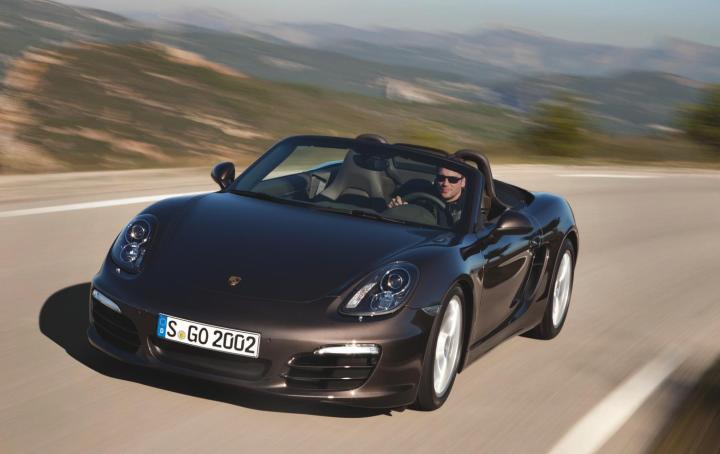
For the past several years, Porsche has been in a power race. It’s dramatically increased the power of its traditional boxer-six engines, and broadened the use of V8s, formerly an unorthodox configuration for the Zuffenhausen carmaker.
Now, that trend appears poised to reverse itself. A new range of four-cylinder engines will soon hit the market, giving efficiency a seat at the table.
CAR revealed important details about these engines, which will come in three flavors to start. A 1.6-liter version will produce 210 horsepower, a 2.0-liter version will be good for 286 hp, and a 2.5-liter version will produce 360 hp.
With power outputs that high and displacements that low, expect all engines in this family to feature turbocharging and direct injection. Each engine will also feature the same horizontally-opposed boxer configuration as the company’s signature six-cylinder motors.
The 2.0- and 2.5-liter engines are expected to find their way into the Boxster, Cayman, and Cayenne, with other models likely to follow as Porsche grapples with stricter global emissions standards.
The 1.6-liter version is reportedly in limbo. It was apparently intended for a “baby Boxster” sports car that could have spawned Audi and Volkswagen siblings, but has now been shelved.
There have been four-cylinder Porsches before, including James Deans’ 550 Spyder and the recently-unveiled 919 Hybrid racer (although its engine is a V4), so these downsized engines aren’t much of a stretch. They’re certainly less sacrilegious than the diesel engine offered in the Cayenne.
So Porsche is going back to its roots in a way, although it will probably run afoul of fans who think – in this day and age – a car with such a small engine can’t be a “real” Porsche.
Each Porsche excursion into a new market segment has led to increased sales and, judging from the new engines’ estimated power output, it looks like enthusiasts won’t be left behind on this one.
Editors' Recommendations
- Porsche’s most powerful production car is an EV
- Porsche’s second electric model is a sports car in hiking boots
- Porsche using 3D printing technology to make custom-tailored seat cushions
- Here’s how Porsche plans to give electric SUVs snow-conquering grip
- 2021 Jaguar F-Type sports car gets a new face and more tech


